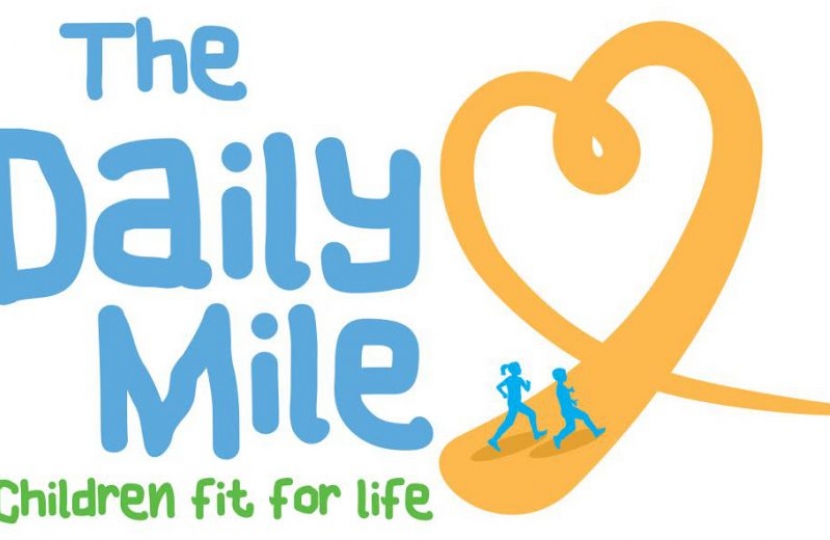
Do your children or grandchildren do their Daily Mile?
We all know the importance of getting into the habit of regular physical activity and where better to start but at an early age at school. Cllr Veronica Jones, Cabinet member for Adult Well Being and Health recently joined Stamfordham First School in their Daily Mile and was delighted to see how the young people took part with enthusiasm and returned to class relaxed, rosy cheeked and ready to work.
The Daily Mile is a social activity where children run or jog, at their own pace, for 15 minutes every day during school hours with their classmates making them fitter, healthier, and more able to concentrate in the classroom. Everyone should have fun taking part - it is not P.E. nor is it competitive -and the aim is to build confidence and resilience and help relationships.
‘The Daily Mile’ was introduced into Northumberland schools last year as part of a government priority to combat childhood obesity and endorses the idea that 15 minutes of daily activity improves the physical fitness, health and well-being of young people .
Guidelines state that children between 5-16 years should be active for at least an hour each day but in Northumberland under 20% of children meet these guidelines on a weekly basis.
The Northumberland’s new Joint Health and Wellbeing Strategy for the next ten years says that a good health status positively affects educational performance and attainment. Very good or better health in childhood is linked to accelerating achievements and physical exercise has a significant and positive impact on academic performance. Education achievement also is a key factor in better health and employment as adults.
Thirty seven of our First and Primary schools in Northumberland have now signed up to do the Daily Mile and Veronica Jones and Cllr Wayne Daley, Cabinet Member for Children’s Services are working together to expand this across many more of our schools along with Cllr Cath Homer whose portfolio includes Northumberland Sport.
Evidence shows that the benefits not only include having a positive impact on health and wellbeing such as physical, emotional, social and mental outcomes for both young people and the school workforce and improving Physical Literacy levels but help too to improve both health inequalities and educational attainment so it is important that all schools are encouraged to take part.

